Books on consciousness
A list of books relating to the hard problem of consciousness. Regularly updated cos I keep finding new stuff all the time.
A list of books relating to the hard problem of consciousness. Regularly updated cos I keep finding new stuff all the time.
2005
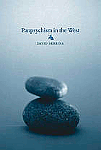 David Skrbina
David Skrbina
Panpsychism in the West
(MIT 2005)
In the first comprehensive study of the subject, Skrbina argues for the importance of panpsychism – the theory that mind exists, in some form, in all living and nonliving things. He points out that panpsychism is long overdue for detailed treatment and proposes with this book to add impetus to the discussion of panpsychism in serious philosophical inquiries. See MIT | Amazon | Google
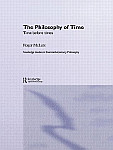 Roger McLure
Roger McLure
The Philosophy of Time: Time before Times
(Routledge 2005)
The question of the existence and the properties of time has been subject to debate for thousands of years. McLure offers a contrastive analysis of phenomenologies of time from the perspective of the problematics of the visibility of time. Is time perceptible only through the veil of change? Or is there a naked presence of 'time itself'? Or has time always effaced itself? McClure also stages confrontations between phenomenology of time and analytical philosophy of time. By doing so he explores ancient issues from a fresh perspective. See Routledge | Amazon | Google
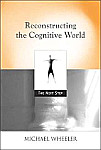 Michael Wheeler
Michael Wheeler
Reconstructing the Cognitive World: The Next Step
(MIT 2005)
Wheeler argues that we should turn away from the generically Cartesian philosophical foundations of much contemporary cognitive science research and proposes instead a Heideggerian approach. He draws on analytic philosophy, continental philosophy, and empirical work to "reconstruct" the philosophical foundations of cognitive science. His analysis demonstrates that Heideggerian continental philosophy and naturalistic cognitive science need not be mutually exclusive and shows further that a Heideggerian framework can act as the "conceptual glue" for new work in cognitive science. See MIT | Amazon | Google
 Palle Yourgrau
Palle Yourgrau
A World Without Time: The Forgotten Legacy of Gödel and Einstein
(Basic Books 2005)
In 1942, Kurt Gödel and Albert Einstein became close friends; they walked to and from their offices every day, exchanging ideas about science, philosophy, politics, and the lost world of German science. By 1949, Gödel had produced a remarkable proof: In any universe described by the Theory of Relativity, time cannot exist. Einstein endorsed this reluctantly but could find no way to refute it; neither since has anyone else. Yet cosmologists and philosophers alike have proceeded as if this discovery was never made. See Basic Books | Amazon | Google
 J. J. A. Mooij
J. J. A. Mooij
Time and Mind: The History of a Philosophical Problem
(Brill 2005)
This book deals with the history of a central problem in the philosophy of time: Can time exist without mind or consciousness, and if not, in what respects? Aristotle was the first to formulate this problem, and it has been intensively discussed ever since. This book analyses the answers and arguments and sets them in their historical context. See Brill | Amazon | Google
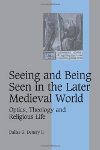 Dallas G. Denery II
Dallas G. Denery II
Seeing and Being Seen in the Later Medieval World: Optics, Theology and Religious Life
(Cambridge 2005)
During the later Middle Ages people became increasingly obsessed with vision, visual analogies and the possibility of visual error. Denery addresses the question of what medieval men and women thought it meant to see themselves and others in relation to the world and to God. Exploring the writings of Roger Bacon, Duns Scotus, Peter Aureol and Nicholas of Autrecourt in light of an assortment of popular religious guides for preachers, confessors and penitents, including Peter of Limoges' Treatise on the Moral Eye, he illustrates how the question preoccupied medieval men and women on both an intellectual and practical level. See Cambridge | Amazon | Google
 Ursula Coope
Ursula Coope
Time for Aristotle: Physics IV. 10–14
(Oxford 2005)
Aristotle claims that time is not a kind of change, but something dependent on change – he defines it as a kind of ‘number of change.’ Coope argues that this means that time is a kind of order (not, as is commonly supposed, a kind of measure). It is universal order within which all changes are related to each other. This explains two puzzling claims that Aristotle makes: that the now is like a moving thing, and that time depends for its existence on the mind. See Oxford | Amazon | Google
 Michael Lockwood
Michael Lockwood
The Labyrinth of Time: Introducing the Universe
(Oxford 2005)
The universe is much stranger than we imagine and the puzzle at its centre is time. Lockwood takes us on a fascinating journey into the nature of things, investigating philosophical questions about past, present, and future, our experience of time, and the possibility of time travel. And he provides a careful and lively introduction to the physics of time, guiding us through relativity theory, quantum physics, and the ground-breaking ideas of scientists from Newton to Hawking. See Oxford | Amazon | Google
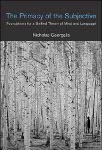 Nicholas Georgalis
Nicholas Georgalis
The Primacy of the Subjective
(MIT 2005)
In this highly original monograph, Georgalis proposes that the concept of ‘minimal content’ is fundamental to both mind and language. This is a narrow, first-person, non-phenomenal concept that represents the subject of an agent’s intentional state as she conceives it. Georgalis also demonstrates the limitations of a third-person methodology in the study of mind and language and shows how these deficiencies can be corrected by the incorporation of a first-person methodology. See MIT | Amazon | Google
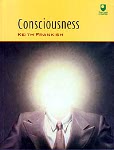 Keith Frankish
Keith Frankish
Consciousness
(Open University 2005)
Aims to make recent philosophical work on consciousness accessible to newcomers, using techniques the Open University has successfully developed over the last 30 years – guiding students through key positions and arguments, using carefully edited readings and extensive questions, activities, and discussions of answers. Provides a sound grounding in the current debate about consciousness and enables the reader to adopt an informed position on the issue. See keithfrankish.com | Amazon
 E. Thompson & G. Colombetti (eds.)
E. Thompson & G. Colombetti (eds.)
Emotion Experience
(Imprint 2005)
Emotion experience has yet to gain a central place in the study of consciousness. This special issue of the Journal of Consciousness Studies presents the most recent views on the matter, with discussions of several aspects of emotion experience, inculding what happens in the body when we have feelings, how feelings relate to our understanding of the world, the character of moods, its embodied feel and its relation to action. See Imprint | Amazon | Google
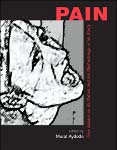 Murat Aydede (ed.)
Murat Aydede (ed.)
Pain: New Essays On Its Nature And The Methodology Of Its Study
(MIT 2005)
Pain and its puzzles offers opportunities for understanding larger issues in both philosophy and psychology. In this book, leading experts offer a range of views on how to conceptualize and study pain. Among the issues discussed are perceptual and representationalist accounts of pain, the affective-motivational dimension of pain, whether animals feel pain, and other methodological and theoretical issues in the science and philosophy of pain. See MIT | Amazon | Google
 Paul Gilbert & Kathleen Lennon
Paul Gilbert & Kathleen Lennon
The World, the Flesh and the Subject: Continental Themes in Philosophy of Mind and Body
(Edinburgh University Press)
Contemporary Continental thought makes contact with analytic philosophy in the philosophy of mind. Rejecting the dominant Anglo-American paradigm, which reduces mental phenomena to their roles in a scientific psychology, the authors present a non-mysterious, naturalistic alternative. Characterising mental life is, they seek to show, capturing the world from the point of view of the subject. But the subject is essentially embodied, so that mental phenomena are modes of our fleshly existence in the world. See EUP | Google
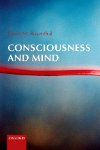 David M. Rosenthal
David M. Rosenthal
Consciousness and Mind
(Oxford 2005)
This volume gathers together Rosenthal’s work on consciousness from the past two decades, and represents the definitive presentation of his influential theory of consciousness as higher-order thought. Two of the essays, one an extended treatment of homomorphism theory, appear here for the first time. A substantive introduction draws out the connections between the essays and highlights their implications. See Oxford | Amazon | Google
 David H. Lund
David H. Lund
The Conscious Self: The Immaterial Center of Subjective States
(Humanity 2005)
Combining analytic and phenomenological approaches, Lund meets well-known materialist and reductionist theories of the self head on, providing a comprehensive set of arguments against them. He then argues that the conscious self must be accorded the ontological status of a “metaphysically basic particular.” See Humanity | Amazon | Google
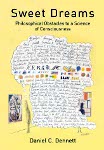 Daniel Dennett
Daniel Dennett
Sweet Dreams: Philosophical Obstacles to a Science of Consciousness
(MIT 2005)
In the years since Dennett’s influential Consciousness Explained (1991), scientific research on consciousness has been a hotly contested battleground, “so rambunctious,” Dennett observes, “that several people are writing books just about the tumult.” Dennett now returns to the subject for “revision and renewal” of his theory, taking into account empirical advances in the field and recent theoretical challenges. See MIT | Google
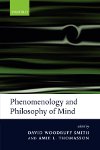 Smith & Thomasson (eds.)
Smith & Thomasson (eds.)
Phenomenology and Philosophy of Mind
(Oxford 2005)
Philosophical work on the mind flowed in two streams through the 20th century. The phenomenological tradition began with Brentano and was developed by Husserl, Heidegger, Sartre, and Merleau-Ponty. But Anglophone philosophers developed their own distinct styles of studying the mind, and a gulf seemed to open up between the traditions. This volume aims to bring them together again with essays by leading figures from both traditions. See Oxford | Google
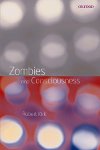 Robert Kirk
Robert Kirk
Zombies and Consciousness
(Oxford 2005)
Zombies are physically and behaviourally just like us, but not conscious. Kirk argues that the zombie idea depends on an incoherent view of the nature of phenomenal consciousness. He demolishes the zombie idea with a striking new argument which reveals fundamental confusions in the implied conception of consciousness. He also develops a fresh approach to phenomenal consciousness: to explaining how there can be such a thing as “what it is like.” See Oxford | Google
 Igor Aleksander
Igor Aleksander
The World in my Mind, My Mind in the World
(Imprint 2005)
Never one to dodge the big questions, Igor Aleksander tackles them head on in this latest book: Is there a real world or is our awareness of one an illusion? Are animals conscious? Can machines be conscious? What is it to be unconscious? Does the science of consciousness impinge on religious thought? How is consciousness affected by mental deterioration? Aleksander addresses both the general reader and the consciousness specialist. See Imprint | Google
 Mohan Matthen
Mohan Matthen
Seeing, Doing and Knowing: A Philosophical Theory of Sense Perception
(Oxford 2005)
A novel treatment of sense perception whose central theme is the task-oriented specialization of sensory systems across the biological domain. These systems co-evolve with an organism’s learning and action systems, providing the latter with classifications of external objects in terms of sensory categories purpose-built for their need. On the basis of this central idea, Matthen presents novel theories of perceptual similarity, content, and realism. See Oxford | Google | Amazon | A précis (pdf) | Fred Dretske review
 Shaun Gallagher
Shaun Gallagher
How the Body Shapes the Mind
(Oxford 2005)
There is a growing consensus across many disciplines that the contribution of embodiment to cognition is inescapable. Gallagher’s book aims to contribute to the formulation of a common vocabulary and to develop a conceptual framework that will avoid both the overly reductionistic approaches that explain everything in terms of bottom-up neuronal mechanisms, and inflationistic approaches that explain everything in terms of Cartesian, top-down cognitive states. See Oxford | Google | Amazon
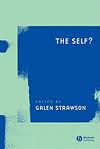 Galen Strawson (ed.)
Galen Strawson (ed.)
The Self
(Wiley 2005)
Many of us experience ourselves as having or being a ‘self,’ even though we may not be clear what that is. Written by leading authorities in the field, the papers in this volume reflect on key questions like: Does the self exist? If so, what is its nature? Is it a single thing, or could there be a succession of selves? Could our sense of a single continuous self be an illusion? What are the ethical implications of selfhood? And what is the relation between self-expression and self-control? See Wiley | Google | Amazon
 Susan Blackmore
Susan Blackmore
Conversations on Consciousness
(Oxford 2005)
Susan Blackmore interviews some eminent thinkers who have devoted much of their lives to understanding the concept of consciousness. The interviewees, ranging from major philosophers to renowned scientists, talk candidly with Blackmore about some of the key philosophical issues confronting us in a series of conversations that are revealing, insightful and stimulating. See Oxford | Google | Amazon | Sue Blackmore’s site | Guardian review
 Susan Blackmore
Susan Blackmore
Consciousness – A Very Short Introduction
(Oxford 2005)
“The last great mystery for science,” consciousness has become a controversial topic. How can a physical brain create our experience of the world? What creates our identity? Do we really have free will? Could consciousness itself be an illusion? Exciting new developments in brain science are opening up these debates, and the field has now expanded to include biologists, neuroscientists, psychologists, and philosophers. See Oxford | Google | Amazon | Scribd
 Peter Carruthers
Peter Carruthers
Consciousness – Essays from a Higher-Order Perspective
(Oxford 2005)
A collection of Peter Carruthers’s best essays on consciousness, developing and defending his distinctive theory of experiential consciousness. See Oxford University Press | Amazon | Google Books

Panpsychism in the West
(MIT 2005)
In the first comprehensive study of the subject, Skrbina argues for the importance of panpsychism – the theory that mind exists, in some form, in all living and nonliving things. He points out that panpsychism is long overdue for detailed treatment and proposes with this book to add impetus to the discussion of panpsychism in serious philosophical inquiries. See MIT | Amazon | Google

The Philosophy of Time: Time before Times
(Routledge 2005)
The question of the existence and the properties of time has been subject to debate for thousands of years. McLure offers a contrastive analysis of phenomenologies of time from the perspective of the problematics of the visibility of time. Is time perceptible only through the veil of change? Or is there a naked presence of 'time itself'? Or has time always effaced itself? McClure also stages confrontations between phenomenology of time and analytical philosophy of time. By doing so he explores ancient issues from a fresh perspective. See Routledge | Amazon | Google

Reconstructing the Cognitive World: The Next Step
(MIT 2005)
Wheeler argues that we should turn away from the generically Cartesian philosophical foundations of much contemporary cognitive science research and proposes instead a Heideggerian approach. He draws on analytic philosophy, continental philosophy, and empirical work to "reconstruct" the philosophical foundations of cognitive science. His analysis demonstrates that Heideggerian continental philosophy and naturalistic cognitive science need not be mutually exclusive and shows further that a Heideggerian framework can act as the "conceptual glue" for new work in cognitive science. See MIT | Amazon | Google

A World Without Time: The Forgotten Legacy of Gödel and Einstein
(Basic Books 2005)

In 1942, Kurt Gödel and Albert Einstein became close friends; they walked to and from their offices every day, exchanging ideas about science, philosophy, politics, and the lost world of German science. By 1949, Gödel had produced a remarkable proof: In any universe described by the Theory of Relativity, time cannot exist. Einstein endorsed this reluctantly but could find no way to refute it; neither since has anyone else. Yet cosmologists and philosophers alike have proceeded as if this discovery was never made. See Basic Books | Amazon | Google

Time and Mind: The History of a Philosophical Problem
(Brill 2005)

This book deals with the history of a central problem in the philosophy of time: Can time exist without mind or consciousness, and if not, in what respects? Aristotle was the first to formulate this problem, and it has been intensively discussed ever since. This book analyses the answers and arguments and sets them in their historical context. See Brill | Amazon | Google

Seeing and Being Seen in the Later Medieval World: Optics, Theology and Religious Life
(Cambridge 2005)
During the later Middle Ages people became increasingly obsessed with vision, visual analogies and the possibility of visual error. Denery addresses the question of what medieval men and women thought it meant to see themselves and others in relation to the world and to God. Exploring the writings of Roger Bacon, Duns Scotus, Peter Aureol and Nicholas of Autrecourt in light of an assortment of popular religious guides for preachers, confessors and penitents, including Peter of Limoges' Treatise on the Moral Eye, he illustrates how the question preoccupied medieval men and women on both an intellectual and practical level. See Cambridge | Amazon | Google

Time for Aristotle: Physics IV. 10–14
(Oxford 2005)

Aristotle claims that time is not a kind of change, but something dependent on change – he defines it as a kind of ‘number of change.’ Coope argues that this means that time is a kind of order (not, as is commonly supposed, a kind of measure). It is universal order within which all changes are related to each other. This explains two puzzling claims that Aristotle makes: that the now is like a moving thing, and that time depends for its existence on the mind. See Oxford | Amazon | Google

The Labyrinth of Time: Introducing the Universe
(Oxford 2005)

The universe is much stranger than we imagine and the puzzle at its centre is time. Lockwood takes us on a fascinating journey into the nature of things, investigating philosophical questions about past, present, and future, our experience of time, and the possibility of time travel. And he provides a careful and lively introduction to the physics of time, guiding us through relativity theory, quantum physics, and the ground-breaking ideas of scientists from Newton to Hawking. See Oxford | Amazon | Google

The Primacy of the Subjective
(MIT 2005)

In this highly original monograph, Georgalis proposes that the concept of ‘minimal content’ is fundamental to both mind and language. This is a narrow, first-person, non-phenomenal concept that represents the subject of an agent’s intentional state as she conceives it. Georgalis also demonstrates the limitations of a third-person methodology in the study of mind and language and shows how these deficiencies can be corrected by the incorporation of a first-person methodology. See MIT | Amazon | Google

Consciousness
(Open University 2005)
Aims to make recent philosophical work on consciousness accessible to newcomers, using techniques the Open University has successfully developed over the last 30 years – guiding students through key positions and arguments, using carefully edited readings and extensive questions, activities, and discussions of answers. Provides a sound grounding in the current debate about consciousness and enables the reader to adopt an informed position on the issue. See keithfrankish.com | Amazon

Emotion Experience
(Imprint 2005)
Emotion experience has yet to gain a central place in the study of consciousness. This special issue of the Journal of Consciousness Studies presents the most recent views on the matter, with discussions of several aspects of emotion experience, inculding what happens in the body when we have feelings, how feelings relate to our understanding of the world, the character of moods, its embodied feel and its relation to action. See Imprint | Amazon | Google

Pain: New Essays On Its Nature And The Methodology Of Its Study
(MIT 2005)

Pain and its puzzles offers opportunities for understanding larger issues in both philosophy and psychology. In this book, leading experts offer a range of views on how to conceptualize and study pain. Among the issues discussed are perceptual and representationalist accounts of pain, the affective-motivational dimension of pain, whether animals feel pain, and other methodological and theoretical issues in the science and philosophy of pain. See MIT | Amazon | Google

The World, the Flesh and the Subject: Continental Themes in Philosophy of Mind and Body
(Edinburgh University Press)
Contemporary Continental thought makes contact with analytic philosophy in the philosophy of mind. Rejecting the dominant Anglo-American paradigm, which reduces mental phenomena to their roles in a scientific psychology, the authors present a non-mysterious, naturalistic alternative. Characterising mental life is, they seek to show, capturing the world from the point of view of the subject. But the subject is essentially embodied, so that mental phenomena are modes of our fleshly existence in the world. See EUP | Google

Consciousness and Mind
(Oxford 2005)
This volume gathers together Rosenthal’s work on consciousness from the past two decades, and represents the definitive presentation of his influential theory of consciousness as higher-order thought. Two of the essays, one an extended treatment of homomorphism theory, appear here for the first time. A substantive introduction draws out the connections between the essays and highlights their implications. See Oxford | Amazon | Google

The Conscious Self: The Immaterial Center of Subjective States
(Humanity 2005)
Combining analytic and phenomenological approaches, Lund meets well-known materialist and reductionist theories of the self head on, providing a comprehensive set of arguments against them. He then argues that the conscious self must be accorded the ontological status of a “metaphysically basic particular.” See Humanity | Amazon | Google

Sweet Dreams: Philosophical Obstacles to a Science of Consciousness
(MIT 2005)
In the years since Dennett’s influential Consciousness Explained (1991), scientific research on consciousness has been a hotly contested battleground, “so rambunctious,” Dennett observes, “that several people are writing books just about the tumult.” Dennett now returns to the subject for “revision and renewal” of his theory, taking into account empirical advances in the field and recent theoretical challenges. See MIT | Google

Phenomenology and Philosophy of Mind
(Oxford 2005)

Philosophical work on the mind flowed in two streams through the 20th century. The phenomenological tradition began with Brentano and was developed by Husserl, Heidegger, Sartre, and Merleau-Ponty. But Anglophone philosophers developed their own distinct styles of studying the mind, and a gulf seemed to open up between the traditions. This volume aims to bring them together again with essays by leading figures from both traditions. See Oxford | Google

Zombies and Consciousness
(Oxford 2005)

Zombies are physically and behaviourally just like us, but not conscious. Kirk argues that the zombie idea depends on an incoherent view of the nature of phenomenal consciousness. He demolishes the zombie idea with a striking new argument which reveals fundamental confusions in the implied conception of consciousness. He also develops a fresh approach to phenomenal consciousness: to explaining how there can be such a thing as “what it is like.” See Oxford | Google

The World in my Mind, My Mind in the World
(Imprint 2005)
Never one to dodge the big questions, Igor Aleksander tackles them head on in this latest book: Is there a real world or is our awareness of one an illusion? Are animals conscious? Can machines be conscious? What is it to be unconscious? Does the science of consciousness impinge on religious thought? How is consciousness affected by mental deterioration? Aleksander addresses both the general reader and the consciousness specialist. See Imprint | Google

Seeing, Doing and Knowing: A Philosophical Theory of Sense Perception
(Oxford 2005)

A novel treatment of sense perception whose central theme is the task-oriented specialization of sensory systems across the biological domain. These systems co-evolve with an organism’s learning and action systems, providing the latter with classifications of external objects in terms of sensory categories purpose-built for their need. On the basis of this central idea, Matthen presents novel theories of perceptual similarity, content, and realism. See Oxford | Google | Amazon | A précis (pdf) | Fred Dretske review

How the Body Shapes the Mind
(Oxford 2005)
There is a growing consensus across many disciplines that the contribution of embodiment to cognition is inescapable. Gallagher’s book aims to contribute to the formulation of a common vocabulary and to develop a conceptual framework that will avoid both the overly reductionistic approaches that explain everything in terms of bottom-up neuronal mechanisms, and inflationistic approaches that explain everything in terms of Cartesian, top-down cognitive states. See Oxford | Google | Amazon

The Self
(Wiley 2005)
Many of us experience ourselves as having or being a ‘self,’ even though we may not be clear what that is. Written by leading authorities in the field, the papers in this volume reflect on key questions like: Does the self exist? If so, what is its nature? Is it a single thing, or could there be a succession of selves? Could our sense of a single continuous self be an illusion? What are the ethical implications of selfhood? And what is the relation between self-expression and self-control? See Wiley | Google | Amazon

Conversations on Consciousness
(Oxford 2005)
Susan Blackmore interviews some eminent thinkers who have devoted much of their lives to understanding the concept of consciousness. The interviewees, ranging from major philosophers to renowned scientists, talk candidly with Blackmore about some of the key philosophical issues confronting us in a series of conversations that are revealing, insightful and stimulating. See Oxford | Google | Amazon | Sue Blackmore’s site | Guardian review

Consciousness – A Very Short Introduction
(Oxford 2005)

“The last great mystery for science,” consciousness has become a controversial topic. How can a physical brain create our experience of the world? What creates our identity? Do we really have free will? Could consciousness itself be an illusion? Exciting new developments in brain science are opening up these debates, and the field has now expanded to include biologists, neuroscientists, psychologists, and philosophers. See Oxford | Google | Amazon | Scribd

Consciousness – Essays from a Higher-Order Perspective
(Oxford 2005)
A collection of Peter Carruthers’s best essays on consciousness, developing and defending his distinctive theory of experiential consciousness. See Oxford University Press | Amazon | Google Books
Menu
 What’s a logical paradox?
What’s a logical paradox? Achilles & the tortoise
Achilles & the tortoise The surprise exam
The surprise exam Newcomb’s problem
Newcomb’s problem Newcomb’s problem (sassy version)
Newcomb’s problem (sassy version) Seeing and being
Seeing and being Logic test!
Logic test! Philosophers say the strangest things
Philosophers say the strangest things Favourite puzzles
Favourite puzzles Books on consciousness
Books on consciousness Philosophy videos
Philosophy videos Phinteresting
Phinteresting Philosopher biographies
Philosopher biographies Philosopher birthdays
Philosopher birthdays Draft
Draftbarang 2009-2024  wayback machine
wayback machine
 wayback machine
wayback machine